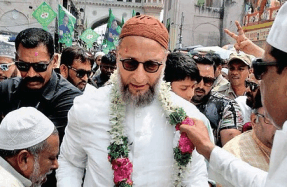
NARENDRA MODI, AS PRIME MINISTER, FITS NO STEREOTYPE and remains an enigma despite this being his 10th year in office. Like the gods of Hindu mythology, he is a man of many avatars, some of which came to the fore in 2023 and enabled him to become, well, the man of the moment, for the moment and by the moment. He can look back at 2023 as his annus mirabilis even though for most world leaders the year was annus horribilis. Especially with two major wars—Ukraine and Gaza—widening the divide between nations already reeling under the combined onslaught of a global economic slowdown and Covid’s long shadow. Modi’s aura of unpredictability and his bold decisions proved advantageous in these crisis-ridden times. Amid the global strife and rubble, he emerged with a rare double credit for his masterful handling of issues on the domestic front and the international stage, making him the cynosure of the globe. In 2023, it was Cometh the Hour, Cometh Modi.
THE REFORMER
Let’s start with Modi the Reformer. In his first term, Modi brought in major economic reform by pushing for a one nation, one tax regime that saw the introduction of the national Goods and Services Tax (GST). In his second term, the prime minister focused on pathbreaking social and political reforms. This September, in a historic decision to politically empower Indian women, the prime minister got Parliament to pass the Women’s Reservation Act, 2023. The Act ordained that 33 percent of the seats in the Lok Sabha and state legislatures would be reserved for female candidates. Modi described it as the next big step for boosting “Nari Shakti” and to spur a “women-led development” of the country. He would face criticism from the Opposition, though, for deferring its implementation till after the 2026 delimitation process for parliamentary constituencies that is also likely to increase the number of seats from the 543 presently.
In December, the Supreme Court vindicated another daring reform of Modi’s by upholding the abrogation of Article 370 which his government had effected in August 2019. It brought legal closure to the special status given to Jammu and Kashmir under the Indian Constitution that had been hanging fire since Independence. In an exclusive interview to INDIA TODAY at his residence on December 26, the prime minister was clear that “Article 370 is gone for ever” and that the “people of Jammu and Kashmir and Ladakh are for the first time free to shape their destinies in their own hands”. On his approach to pushing through tough reforms of the






